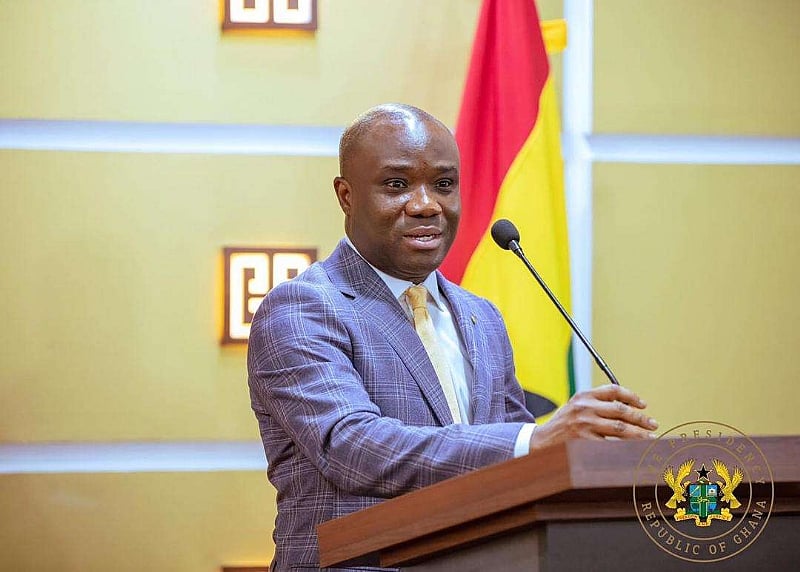The controversy surrounding alleged suspicious aircraft landings at Kotoka International Airport has escalated into a war of words between government officials and opposition figures. The crux of the matter lies in allegations made by Rev. John Ntim Fordjour, Ranking Member of the Defence and Interior Committee, who initially raised concerns about two aircraft – AirMed Flight N823AM and Cavok Air Antonov An-12B – suspected of illicit activities, including smuggling cocaine and cash. These allegations prompted President John Dramani Mahama to order an official investigation. However, the narrative has since taken a sharp turn with accusations of misinformation and political maneuvering.
Felix Kwakye Ofosu, Minister of State in charge of Government Communications, has vehemently denounced Fordjour’s claims, accusing him of deliberately spreading falsehoods to undermine public trust in the government. Ofosu alleges that Fordjour, after being invited to assist with the investigation, has backtracked on his initial assertions, claiming they were not his personal views but rather representative of the Defence and Interior Committee. This shift in stance, according to Ofosu, is a clear indication that Fordjour knew his allegations were baseless and fabricated.
The government’s position is that Fordjour’s claims are a calculated attempt to sow discord and erode public confidence. Ofosu asserts that the facts of the matter contradict Fordjour’s allegations. He argues that Fordjour, by initially presenting the information as his own personal findings, intended to create a sensational narrative that would cast a negative shadow on the government’s integrity. The subsequent retreat, according to Ofosu, exposes the underlying political motivation behind the accusations.
The core issue at stake is the veracity of Fordjour’s claims and his motivations for making them. While Fordjour initially presented the allegations as stemming from credible concerns, his subsequent disavowal raises questions about the reliability of his information. The government contends that the shift in narrative is a deliberate attempt to evade accountability for spreading misinformation. This back-and-forth highlights the delicate balance between raising legitimate concerns about security and the potential for exploiting such issues for political gain.
This controversy underscores the importance of responsible information dissemination, particularly in matters of national security. While raising concerns about potential threats is crucial for maintaining public safety, it is equally important to ensure that such concerns are based on verifiable evidence. The government’s accusation that Fordjour deliberately spread misinformation raises serious questions about the ethical implications of using unsubstantiated claims for political advantage.
The ongoing investigation into the alleged suspicious aircraft landings will ultimately determine the truth behind the claims and counterclaims. However, the public exchange between government officials and opposition figures highlights the potential for political maneuvering and the importance of discerning fact from fiction in a complex and often politically charged environment. The incident also serves as a reminder of the critical role of responsible journalism and the need for careful scrutiny of information before disseminating it to the public. The potential consequences of spreading misinformation, especially in matters of national security, can be significant, eroding public trust and potentially jeopardizing investigations.


